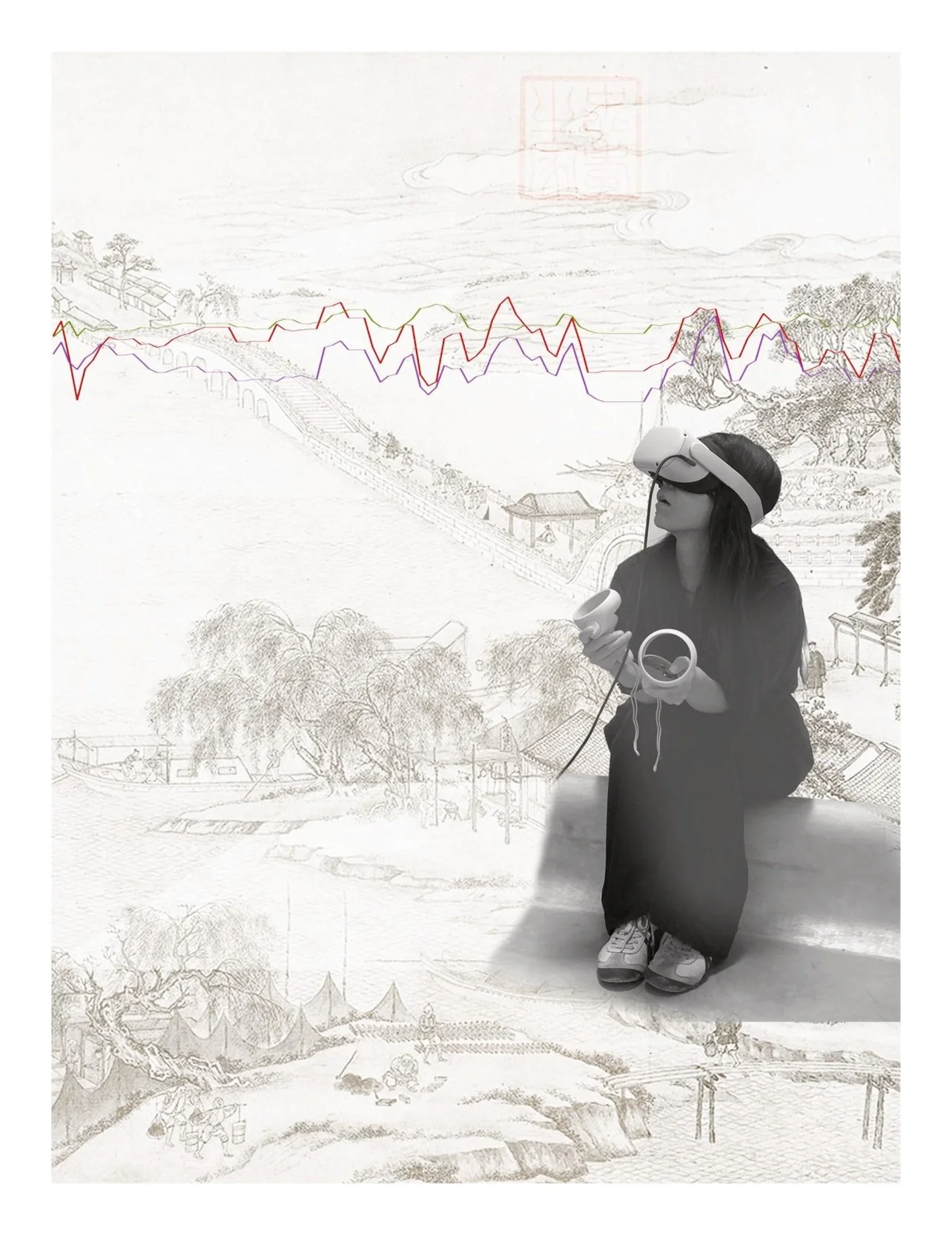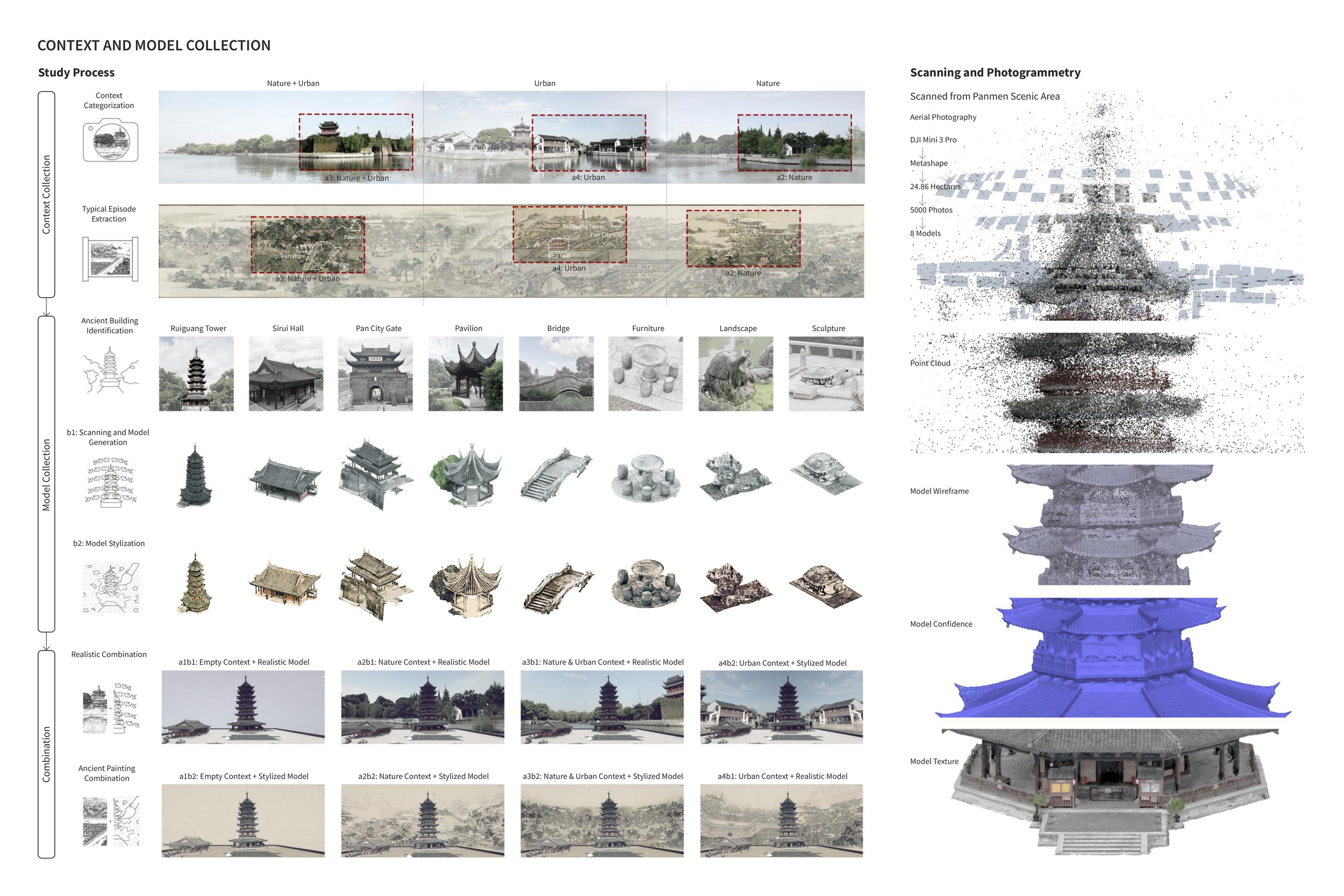Embrace Thinking | Embodied Interaction & Emotion Classification
In developed cities, urban autism is increasing, affecting people of all ages with loneliness and depression. To address this, we designed an interactive hugging robot for emotional comfort.
We built an Arduino-driven breathing prototype, capable of adjusting breathing frequency and softness. Using EEG, emotional videos, and classification algorithms, we tested 10 subjects to optimize responses. The final model issues personalized instructions for interaction and integrates with a mobile app for remote control.
Emotion Canvas | VR Scene & Emotion System
Art therapy enhances mental well-being through creativity, benefiting those with psychological difficulties.
This research explores how three emotions impact art creation using VR, EEG, and surveys. A platform was developed to offer personalized creation options based on experimental data. Elements from an ancient Chinese painting and historical buildings were digitized into VR with varied styles and contexts. 12 participants engaged in different creation phases, leading to insights on relaxation, focus, and communication. The platform lowers barriers to art therapy, enabling individuals to tailor experiences for emotional support.
Tag Talk | Machine Learning & VR Social Platform Design
Urban graffiti reflects citizens’ emotions and needs, bridging the gap between urban architecture and public expression. This study analyzed Lower Manhattan’s graffiti culture, distributing 300 surveys and expanding the dataset to 2,000 images for graffiti recognition modeling. The resulting graffiti map revealed insights into citizens’ perceptions of the city.
A key challenge identified was the limited avenues for public expression in urban spaces. To address this, an online graffiti app was developed using VR technology, enabling users to create virtual graffiti while evaluating urban spaces. This promotes inclusive participation, making city planning more democratic and reflective of real citizen voices.
TCT Asia Exhibition Product | Non-planar 3D Print
Clay is a sustainable, recyclable, and low-carbon material with great potential for urban construction and 3D printing, yet it remains underutilized. This project focuses on urban seating, using modular 3D-printed components to overcome size constraints and form adaptable structures. By analyzing human outdoor postures, we designed non-planar, customizable seating that meets diverse physical needs while promoting sustainability.









